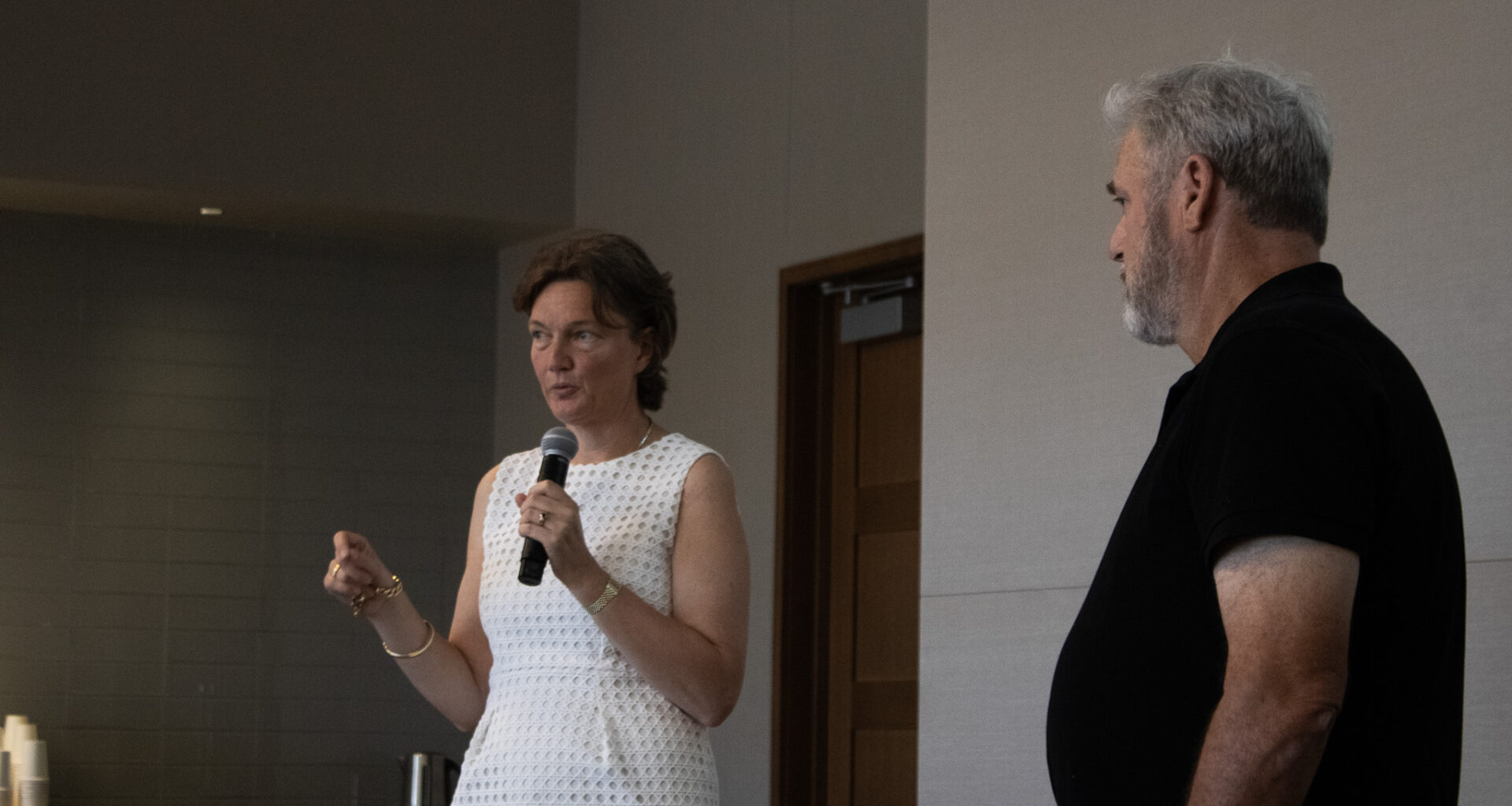A shared biomedical repository is on the way for downtown Fort Worth next year, and industry leaders are convening to bring clarity and insight for the project.
The repository, which will include public institutions and private businesses alike, will see a shared innovation hub that hosts tissue samples and data storage at the Texas A&M-Fort Worth campus. The biobank will be the first of its kind for the North Texas region.
Texas A&M-Fort Worth held an event in downtown Fort Worth on Aug. 28, which saw representatives from regional industry leaders attend. The keynote speaker, Anke Maitland-van der Zee, is the head of the department of genetics at the University Medical System Groningen. She helped start a similar medical repository in 2021 called P4O2 in the Netherlands.
On top of sharing P4O2’s work over the past four years, Maitland-van der Zee spoke about some of the lessons she learned over the first couple years heading the institution.
She said the repository helps bridge private and public institutions, which “are still two separate silos,” into a shared scientific space. She also noted the importance of being able to meet the companies where they are at to help bring their investment to the table.
“It’s so important not just to talk and tell your enthusiastic research story — they like that, they’re happy to listen. But you need to think, ‘What do they want, what’s in it for them,’” Maitland-van der Zee said.
After the presentation, members of the crowd — from individuals in academia like Texas A&M University and Texas Christian University to industry leaders in hypersonic aerodynamics — asked Maitland-van der Zee questions ranging from ones about P4O2’s work to the structural challenges.
After the event, Jon Hockenyos, an economic development consultant for the Texas A&M System, said the idea for the biobank hatched about 18 months ago.
As Texas A&M was looking at building the law school downtown, Hockenyos said the university started speaking with local leadership to see what other projects were worth investing in. Hockenyos said a biobank “kept coming up.”
“The feedback from our industry partners has been, ‘Man, if you get this right, we’re happy to play, because it’s a force multiplier for us,’” Hockenyos said.
Cook Children’s Medical Center, Texas Health Resources, Baylor Scott & White Health and JPS Health Network are all “heavily involved” in the process of creating the biobank, said Nina B. Petty, who works in a dual role for Texas A&M School of Law and the Fort Worth Tarrant County Innovation Partnership.
Hockenyos said the biobank should be operational early next year.
Planned innovation hubs will span a slew of other industries at the Texas A&M-Fort Worth campus, including aerospace, agriculture, entrepreneurship, workforce education, and media and entertainment. The Fort Worth-Tarrant County Innovation Partnership, which is working with the university, met with over 100 industry leaders earlier this year to further develop ideas.
Disclosure: Texas A&M-Fort Worth has been a financial supporter of the Fort Worth Report. At the Fort Worth Report, news decisions are made independently of our board members and financial supporters. Read more about our editorial independence policy here.
Ismael M. Belkoura is the health reporter for the Fort Worth Report. Contact him at ismael.belkoura@fortworthreport.org.
At the Fort Worth Report, news decisions are made independently of our board members and financial supporters. Read more about our editorial independence policy here.
Related
Fort Worth Report is certified by the Journalism Trust Initiative for adhering to standards for ethical journalism.
Republish This Story
Republishing is free for noncommercial entities. Commercial entities are prohibited without a licensing agreement. Contact us for details.
